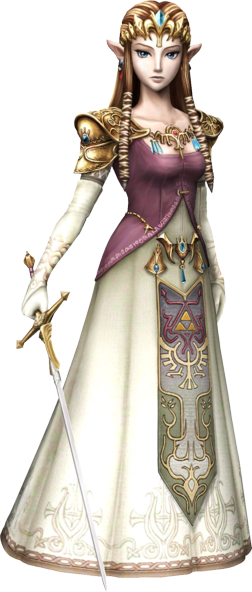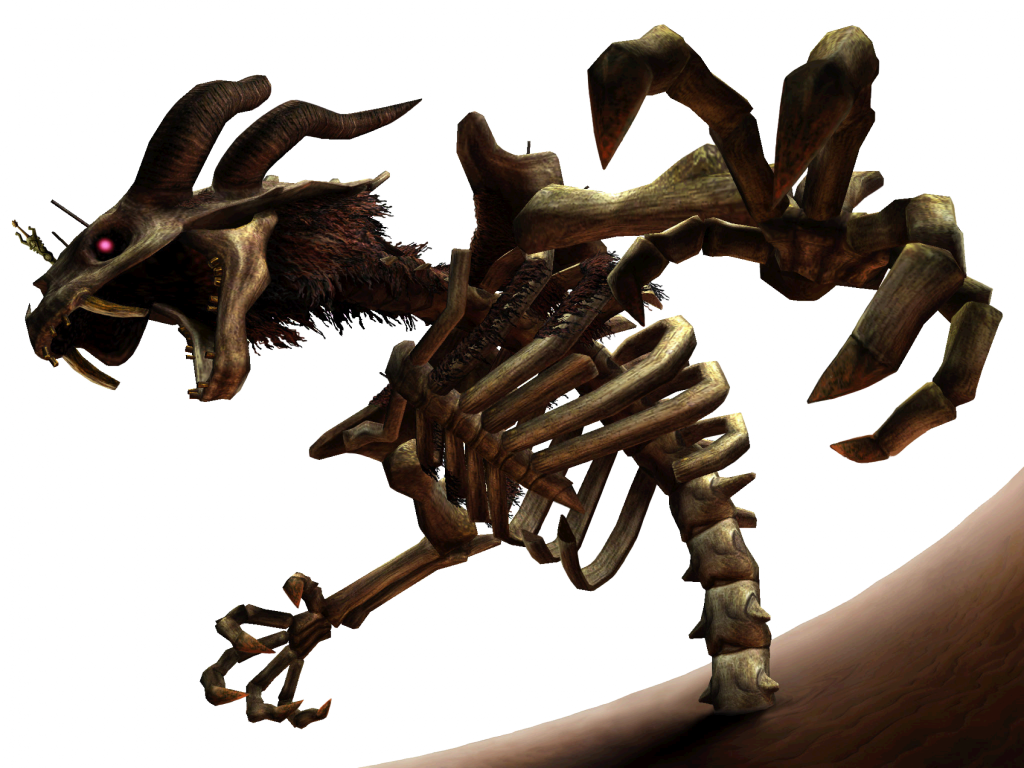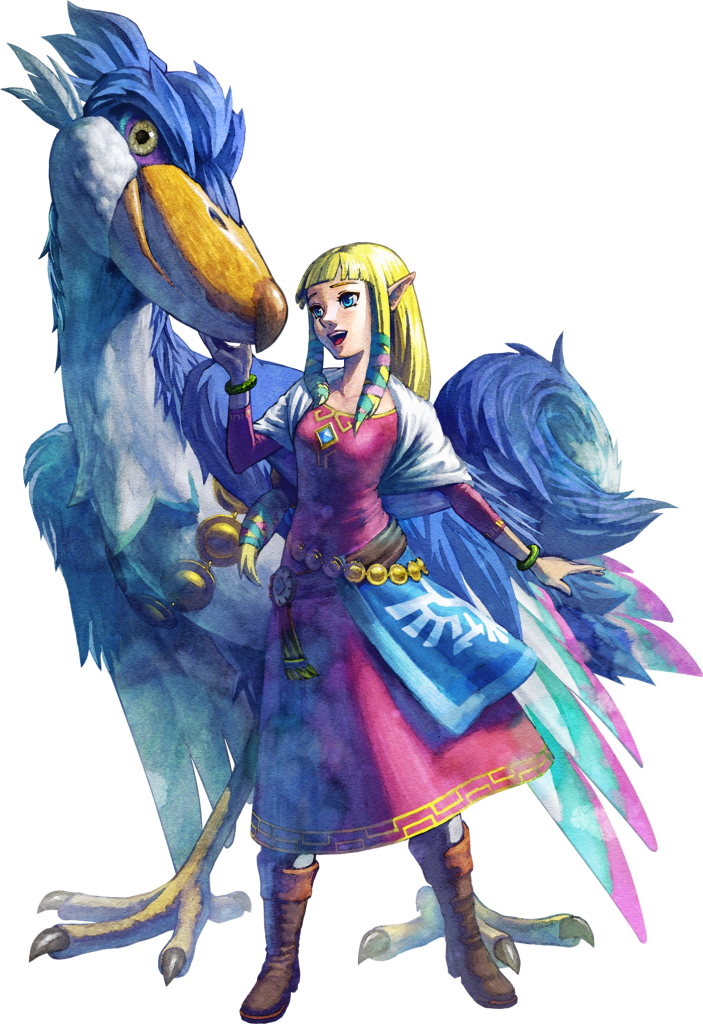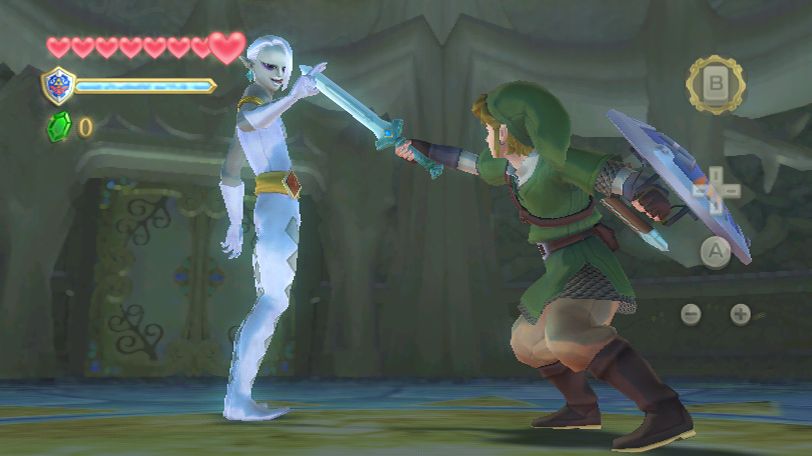Three reasons why The Legend of Zelda: Twilight Princess failed to impress and how Skyward Sword promises to amend those issues.
Author’s Note: This article was originally published on November 18, 2011 as a note on Facebook.
Back in 2004, during the Electronics Entertainment Expo (E3), Nintendo announced The Legend of Zelda: Twilight Princess (TP). I happily joined the chorus of excitement the announcement generated. For the next two years, I closely followed any news regarding the game, like any typical rabid Zelda fan. Indeed I was very much hyped up and among the countless Zelda fans who were disappointed when hearing of TP’s delayed launch. Many, including myself, anticipated this game to be the best Zelda had to offer. My eagerness to play TP would eventually find me camping outside of Target for the launch of the Wii, which I was excited for, but not as much as I was for the release of TP on the same day.

TP could have been a great game and Nintendo worked hard to put everything nostalgic about Zelda within this title. It is a game I would highly recommend for any GameCube or Wii owner. This is where my personal opinion comes to play, but I feel that I am not alone when expressing this view of TP. In spite of all the hype, Twilight Princess was a disappointment. I enjoyed playing for a brief period, but something seemed to be lacking. This game was not what I imagined it to be. Princess Zelda’s role was lackluster, the puzzles and enemies were unchallenging, and the story was anticlimactic.
Based on the trailers, I envisioned the princess to have a deeper role in this game and looked forward to seeing her as a strong female lead. Regrettably, she remained stoic, barely making a significant appearance. Ocarina of Time’s Zelda arguably has much more of a personality than in TP, yet doesn’t even compare with Wind Waker’s version. In TP, Zelda’s plight was understood, but I had no emotional connection with her whatsoever. As a result, being the hero in TP felt unrewarding. I guess my focus should have been on Midna, as she seemed the most intriguing individual in the game. I still can’t help but be disappointed with the lack of personality from other key characters, mainly Zelda.
Enemies and puzzles were a breeze. Swarms of foes were nothing against the waggle of the remote. Even epic boss battles were huge disappointments because they would be so short-lived. Although, I will tell everyone that my one favorite moment in TP was the battle against the fourth boss, Stallord. For some reason, perhaps due to the Spinner item, that fight really left an impression on me. It was fun and became the exception of my overall experience.
Furthermore, the story was bland. Other Zelda games such as Link’s Awakening, Ocarina of Time, Majora’s Mask, or The Wind Waker had well written and noteworthy storylines. I clearly recall the ups and downs, the struggles of the characters, and what I felt Link was fighting for. As for TP, the plot twists were predictable. It lacked a significant climax, which resulted in an unbalanced game story-wise. I thought I would play this game again, but I haven’t touched it since I finished it in 2006. A stark contrast compared to other Zelda games I enjoyed playing over and over again. I have lost count of the number of times I’ve played Ocarina of Time since its release in 1998, despite its now outdated graphics. That is because I enjoyed the characters, the gameplay, and the story.

TP did not sour my liking for the series, but I learned not to set such high standards for a game, because those ideals may not be met. When The Legend of Zelda: Skyward Sword (SS) was announced, I was enthusiastic, but very cautious at the same time. During the development of SS I remained essentially detached, not wanting to repeat the same experience. For a fairly long time I remained this way, until about two weeks ago when the reviews started to pour in. A perfect score is a prestigious thing for a game to achieve, yet Skyward Sword was receiving not just one, but numerous flawless scores from various and reliable sources. However, keeping in mind that a score is just a number, what truly got me excited was what the reviewers were saying about SS.

Richard George, Executive Editor of IGN’s Nintendo coverage, had this to say about the role of Zelda and other characters in Skyward Sword:
Skyward Sword’s characters are phenomenal. Link is his usual mute self, more of an avatar for the player than anything else, but everyone surrounding him is remarkably memorable and charming. Zelda herself is by far the star of the show and her relationship with Link early on forms the backbone of the entire game. You want Link to succeed not so much because you’re worried about saving what will eventually become Hyrule, but because you genuinely care that he cares about Zelda (http://go.ign.com/vqeiMq).
It appears all the problems I had with TP were addressed. Zelda gains a prominent role, becoming a truly dynamic character. No longer the stoic princess, she is instead your best friend. She is someone you will actually care about, undertaking just as much in this game as Link.
Enemies are intelligent and challenging; the bosses expected to be among Zelda’s finest. Each adversary is programmed to read your movements, increasing the likelihood for more damage. You have to look for weaknesses and strike them just right with your sword in order to claim victory. The foe becomes a puzzle which needs to be solved in order to defeat them. The associate editor for Game Informer, Phil Kollar, had the following to say about SS’s clever antagonists:
I had concerns that carefully plotting my attacks for every swing would get boring or frustrating, but the opposite was true. I’ve never felt as engaged or interested in the combat portion of a Zelda game as with Skyward Sword. If you run into a group of enemies waggling the Wii remote like a madman, you will be torn to shreds. Success in swordplay depends on studying opponents’ moves and attacking at the right time and from the right angle. When the correct method to defeat each foe finally clicked, I felt a sense of satisfaction that repeatedly tapping the A button never provided.
This impressive combat system leads to some of the most interesting boss battles in the series’ history. Whether you’re fighting a giant scorpion or a sword-swinging robot, Skyward Sword rarely falls back on the formula of using a tool to knock out the boss and then attacking it three times in a row. You need to be much smarter and much more persistent to best these bad guys. In fact, the last two boss encounters are the most difficult fights in any Zelda game thus far (http://bit.ly/w2o5Ia).

Zelda plots are high-stakes, saving the princess and the world from some horrible demon, but Skyward Sword‘s writing works best when it drills down on the personal lives of the handful of people that inhabit the world. Wandering around the central city of Skyloft will always yield some interesting side story involving the people in the town. It’s worth it not just because you know there will be some material reward at the end but because the dialogue is so well written and surprising (http://bit.ly/rNwool).
More astonishing were the claims of SS being superior to Ocarina of Time. A bold statement, considering Ocarina of Time is highly regarded among the gaming community. IGN UK’s Games Editor, Keza MacDonald, was one of the reviewers daring enough to make such a statement:
Ask people which is their favorite Zelda game, and you’ll almost always get the same answer. There will always be the odd Wind Waker or Majora’s Mask maverick in there, but the overwhelming majority will tell you that it’s Ocarina of Time. … I’ve spent enough time with The Legend of Zelda: Skyward Sword now to realize that this may very well be the best Zelda game ever made (http://go.ign.com/sqcmfc).
For the past two weeks, I have lowered my guard. Again, I am eager for a Zelda game and hopeful for its potential to be the best. The timing of this hype could not be better for Nintendo. However, this enthusiasm is different from the excitement I felt for TP. The news that it may be the best Zelda game yet, is not the reason for my elation. It is because I sense I’m going to experience a game which will set a new standard, develop a legacy, and be treasured for years to come. I may witness a key moment in the history of video games, and I could not be more thrilled.
Are you someone who also found Twilight Princess disappointing? Do you think Skyward Sword has potential? Perhaps you disagree and believe that TP is the epitome of Zelda. I’ll love to hear your thoughts in the comments below!
Skyward Sword is over-rated… Or more to the point Skyward Sword didn’t like me much as I found myself playing almost every other day and it proved unbearable as my bones are sensitive, and my arms would tense up and not in a good way.. I found that the Wii mote is the chief culprit.. The Wii-mote is quite frankly a device that could stand to lose a pound or two! Staring at the ceiling, because I can’t play on account that my arms get sore is also for me a part of the motion control Zelda experience, and as such it is exteremely BORING!! Holding my arm straight for ten minutes and more(to fly the damned loft-wing) is equally dull! The Controller chews through batteries like candy, and only takes 0.4 to about 0.5 volts from each of the batteries requiring you to use rechargeable batteries, since it would leave you with only two thirds of the power left unspent.. It does not matter if you use rechargeable or non-rechargeable it is all the same, but a rechargeable battery can be recharged and you don’t waste energy that way! I blame Wii-motion plus for this games’ downfall… I liked Twilight Princess, and Wind Waker better, because they were for the gamecube(which had digital controls).. I also feel silly waving my arms around like an idiot… Just my thoughts on the matter…
You brought up some good points and I totally respect your thoughts on the matter. While I personally loved Skyward Sword, not everyone felt the same way for the very points you’ve mentioned. This clearly shows how developers have the dilemma of creating a control scheme which is not only fun, but comfortable for everyone to use. It is nice to see both sides of the coin, so thanks for expressing your opinion!
I don’t mean to sound like a troll but the wii remote even with the extra wii motion plus is not that heavy… maybe you just need to get a little more exercise in that arm… AND ON A DIFFERENT NOTE: I absolutely loved the twilight princess and skyward sword I finished the twilight princess in about a month, i completed the skyward sword in about 2 weeks then got stuck on the final boss until yesterday, I wanted to play a game and had some time I finished it! and I do agree with erich that there was not enough of an emotional attachment in TP not true in Skyward Sword it made me want to cry but not as much as ocarina of time did.